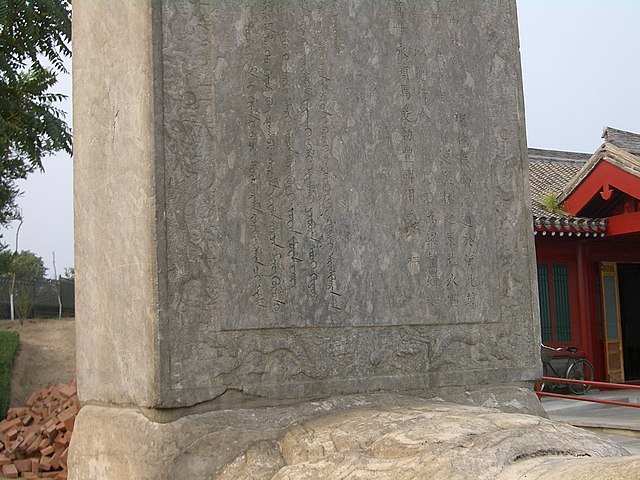The Eight Banners were administrative and military divisions under the Later Jin and Qing dynasties of China into which all Manchu households were placed. In war, the Eight Banners functioned as armies, but the banner system was also the basic organizational framework of all of Manchu society. Created in the early 17th century by Nurhaci, the banner armies played an instrumental role in his unification of the fragmented Jurchen people and in the Qing dynasty's conquest of the Ming dynasty.
Banners of late 17th century
Battle of Qurman, 1759
Soldiers of the Blue banner during the reign of the Qianlong Emperor.
Chinese soldiers in Boxer Rebellion; the left is a Bannerman
Manchu is a critically endangered East Asian Tungusic language native to the historical region of Manchuria in Northeast China. As the traditional native language of the Manchus, it was one of the official languages of the Qing dynasty (1644–1912) of China, although today the vast majority of Manchus speak only Mandarin Chinese. Several thousand can speak Manchu as a second language through governmental primary education or free classes for adults in classrooms or online.
Plaque at the Forbidden City in Beijing, in both Chinese (left, 乾清門; qián qīng mén) and Manchu (right, kiyan cing men)
The Kangxi Emperor's stele near Lugou Bridge, with parallel Chinese and Manchu text
"Banjin Inenggi" and Manchu linguistic activity by the government and students in Changchun, 2011







